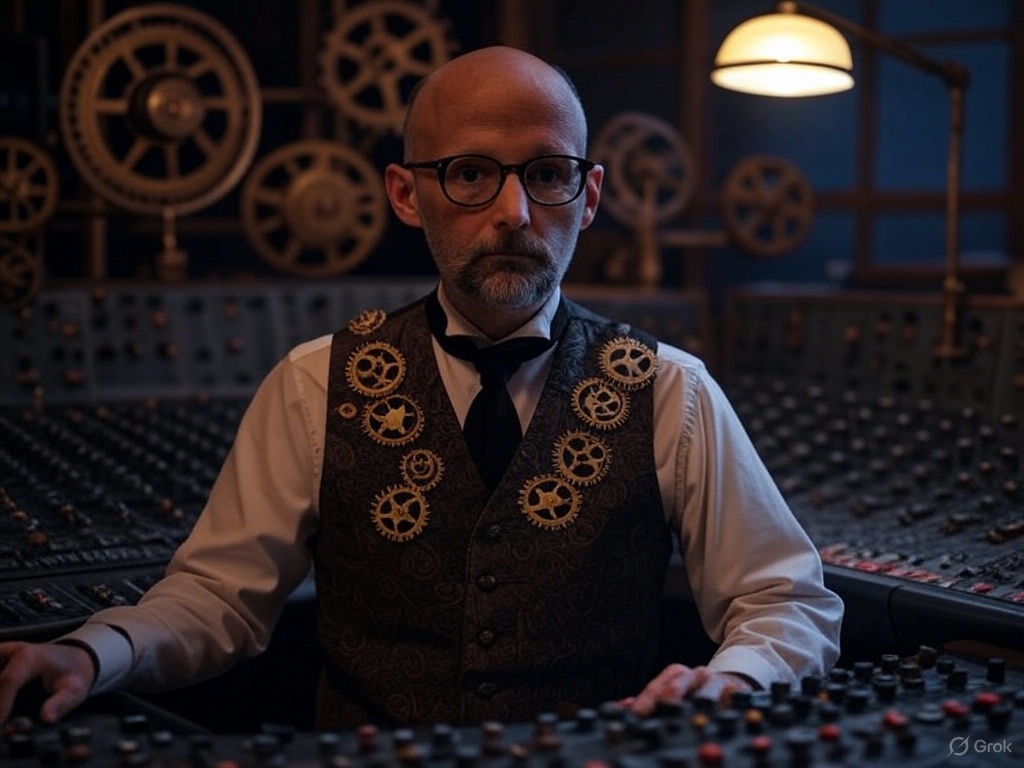Creating content that avoids copyright strikes is tougher than ever. Using unlicensed music is a no-go, licensed tracks cost as much as a new MacBook, and a short video without a soundtrack feels like a rough draft — likely to be ignored by algorithms.
Enter Moby, the legendary electronic artist, with a bold solution: mobygratis, a library of over 500 royalty-free tracks available for free. From videos and podcasts to student films and TikTok clips, creators can now add professional-grade music to their projects without breaking the bank. The library offers MP3, WAV, and even multi-channel versions for flexibility.
 But, as with anything, there are nuances to navigate:
But, as with anything, there are nuances to navigate:
- No Name-Dropping: Tracks must be credited to mobygratis, not Moby himself.
- Philosophical Restrictions: The music can’t be used for projects Moby disapproves of, like right-wing political campaigns or meat-related promotions.
- No Spotify Shenanigans: Remixes can’t be uploaded to Spotify or labeled as “feat. Moby.”
- Viral Thresholds: If a video exceeds 50,000 views or a track hits 10,000 streams, creators must secure a commercial license.
The commercial license is negotiated case-by-case, with a baseline rate of 51% of gross revenue (not net profit). While steep, smaller projects can often snag discounts by contacting [email protected] upfront, detailing how and where the track will be used.
 The library splits tracks into two categories:
The library splits tracks into two categories:
- Mobygratis Tracks: These can be edited, remixed, or reworked, as long as they align with the platform’s rules.
- Restricted Tracks: Limited to non-commercial films and projects, these must be used in their original form, with no remixing or processing allowed.
Moby reserves the right to revoke a license at any time, especially if a track is used in a way that clashes with his values. This flexibility underscores the platform’s unique “reverse-trial” model: creators can start for free, but success triggers a shift to paid licensing.
 For emerging creators, mobygratis is a rare opportunity to access high-quality music legally and affordably. If a project takes off, transitioning to a commercial license keeps things legit. It’s an accessible entry point for those with big ideas but small budgets.
For emerging creators, mobygratis is a rare opportunity to access high-quality music legally and affordably. If a project takes off, transitioning to a commercial license keeps things legit. It’s an accessible entry point for those with big ideas but small budgets.
Will it catch on? It’s hard to say.
The stringent terms and potential “cost of success” might deter some creators, who may fear unexpected licensing fees if their work goes viral.
Alternatively, the model could thrive in niche, art-focused circles, where projects are designed for limited audiences and align with Moby’s ethos.
Moby’s mobygratis is a daring experiment in democratizing music for creators. Whether it becomes a staple for the creative community or remains a niche tool for passion projects depends on how creators — and Moby’s team — navigate its unique balance of freedom and control.






